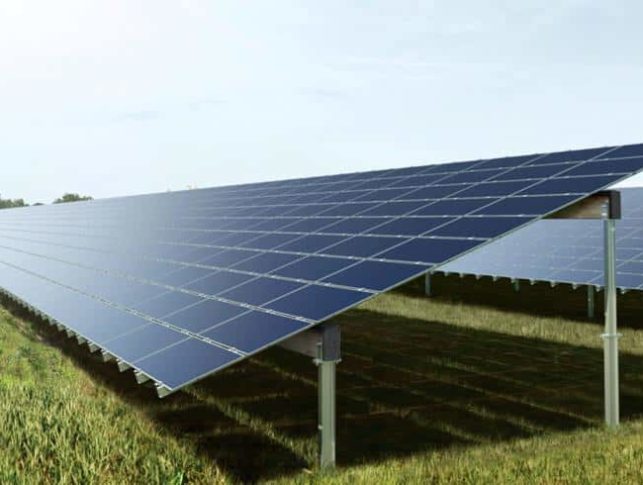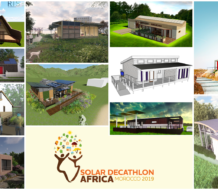The African nation will develop two solar farms that will produce more than 70 megawatts.
With an assist from the World Bank, Zambia will build two solar power projects that will provide the cheapest electricity on the continent.
First Solar Inc., the largest panel producer in the United States, along with the French company Neoen, together will build a 45-megawatt plant that will produce electricity that will sell for just over six cents per kilowatt-hour. Enel, an Italian company, will build a 28-megawatt plant that will sell power for just under eight cents per kilowatt-hour.
The two solar farms will be built near a substation that sends power to Zambia’s capital, Lusaka.
The companies are the first winners of an auction program the World Bank launched to encourage wider use of renewable energy in developing countries.
Program reduces costs, risk
The Scaling Solar program, World Bank, International Finance Corp. and Multilateral Investment Guarantee Agency pooled resources to offer financing, insurance and advice to potential solar developers. This reduces their risk and helps cut costs to build and launch projects, in hopes of attracting large developers capable of building large-scale solar farms to the continent.
The World Bank estimates that less than a quarter of the population of sub-Saharan Africa has access to electrical power. Some African countries, including Zambia, rely heavily on hydropower and have seen energy shortages and outages in recent droughts. Zambia expects to auction another 200 megawatts of solar within a year.
Solar energy development is an important piece of the continent’s plans to help fight global climate change, as approved at COP21 in Paris last year.
Senegal, Madagascar participate
Madagascar and Senegal are also participating in the Scaling Solar project and the World Bank expects to add a fourth African country later this year.
The goal is to encourage development of 850 megawatts of capacity in Zambia, Madagascar and Senegal, which would require an investment of about $1 billion.
The program could be adopted in Asia as well.
“It’s not designed for Africa” alone, said Jamie Fergusson, global lead for renewable energy at the IFC, told Bloomberg. “It’s designed for countries with limited independent power producing experience where the power buyer is a publicly-owned utility.”
Competitive auctions
Scaling Solar uses competitive auctions to award development rights and offers the endorsement of the World Bank. This can allay concerns of international banks about political risk. Using standard contracts, it also speeds development significantly.
More than 90% of Zambia’s generating capacity comes from hydropower.
Drought has brought record-low water levels at the Kariba Dam on the Zambia-Zimbabwe border, forcing significant power cutbacks and rationing.
The reservoir has been at 12%capacity this year and dam authorities cut hydropower production to 25% of capacity in January. A year earlier, the dam, which is fed by the Zambezi River, was at more than 50% capacity.
Africa turns to renewables
With renewable energy a priority on Africa’s climate change agenda, solar developments are becoming more common on the continent.
Morocco this year turned on the first phase of what will be a 580-megawatt farm that will be the world’s largest and serve more than one million people when it is completed in 2018.
Noor 1, the first section located near Ouarzazate, currently produces 160 megawatts of power.
Morocco, which imports more than 90% of its energy, wants to generate 40% of its energy from renewable sources by 2020, with a third of that total coming from solar, wind and hydropower each.
In South Africa, George Airport will use electricity from a 750-kilowatt solar project. Projects that will provide hundreds of megawatts are underway in the nation, where clean energy investment rose to $4.5 billion last year.
Entrepreneurs boost small efforts
Smaller efforts are also taking shape as “solarpreneurs” enter the market.
In Ghana, a local company named Volta builds small solar projects for hospitals, health clinics and schools and lets them pay over time. According to the company’s founder, Mahama Nyankmawu, a 45% reduction in energy costs puts repayment well within reach for his customers.
Another company, Off-Grid Electric, said it is installing more than 10,000 solar units a month in Rwanda and Tanzania. The company recently raised $70 million in investment to expand its operations.
As interest in solar grows on the continent, the World Bank’s Scaling Solar project should help quicken the pace of development.
Antonio Cammisecra, head of business development at Enel in Rome, said the World Bank program for Zambia “accelerated our entry by as much as a couple of years.”





[…] ¶ Zambia is having two solar power projects built that will provide the cheapest electricity in Africa. First Solar Inc and Neoen will partner to build a 45-MW plant that will sell electricity for just over 6¢/kWh, and Enel will build a 28-MW plant selling it for just under 8¢/kWh. [Africa Middle East] […]
[…] Source: Africa-ME […]